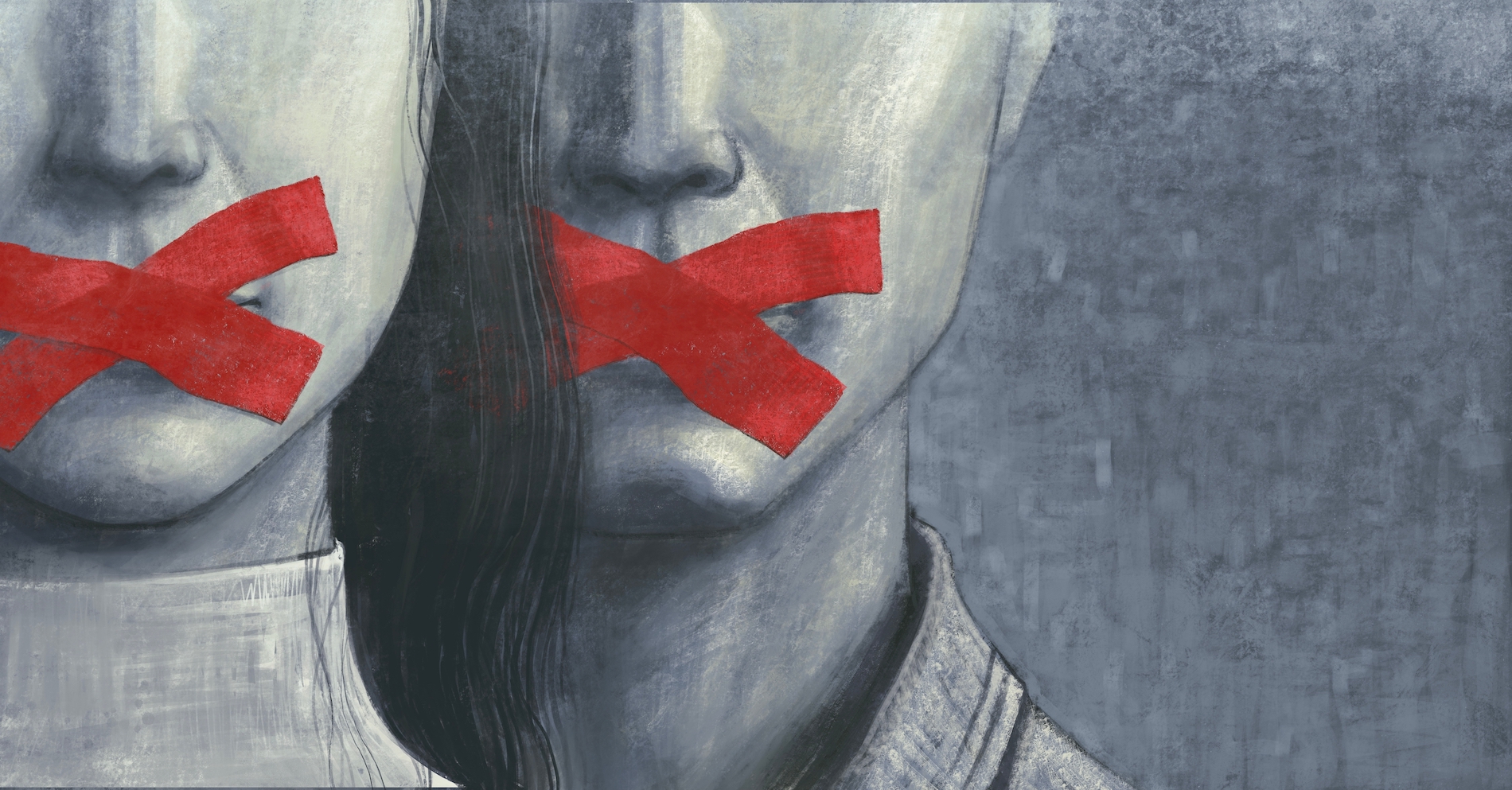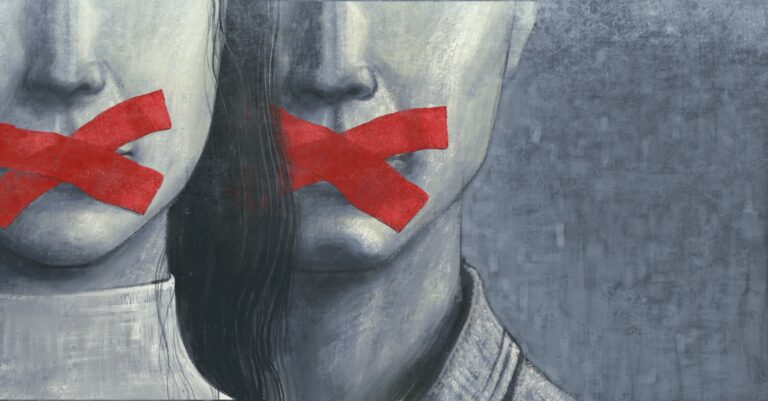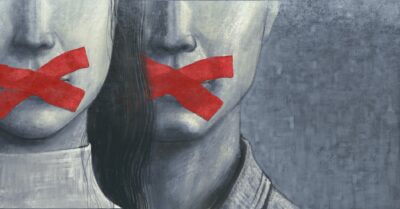Coalition and opposition leaders in Slovakia decided that the fifth anniversary of the murder of investigative journalist Ján Kuciak and his fiancée Martina Kušnírová was a good occasion to attack journalists. By the end of the week, a journalist from public radio faced threats of torture, rape, and death.
Last week, Slovakia commemorated the murder of an investigative journalist that happened five years ago. A journalist who worked in a country where politicians have found it easy to verbally attack journalists.
This journalist himself faced verbal threats, and even approached law enforcement with a criminal complaint. They ignored his concerns, only taking them seriously after he and his fiancée were assassinated in his house.
“You filthy, dirty sold out, may your tongue turn wooden, may you and your whole family in Rajka die until tomorrow morning. I spit on you, you swine, you monkey, you sold-out bastard. ….when Fico comes to the government, you are finished.”
These particular words are not five years old. They were delivered just last week to another journalist as we remembered the legacy of murdered Ján Kuciak and Martina Kušnírová. There were many other, similar words:
“I’ve been listening to your show and I have to let you know, you Jewish fascist c*nt, that you’ve successfully got yourself on the blacklist. That’s the list we’ll be using soon. The Russian armies are here soon, even though both you fascist c*nt and that Soros cunt Čaputová lied so much that there was dust coming out of your mouth, that they will not come, but when the soldiers arrive, we’ll start rounding you and your families and killing you according to the list…”
An empty seat
Many similar messages, in the form of emails and voice messages, were directed at Marta Jančkárová, a host of a weekly political programme on public radio RTVS.
The reason? On February 25th, Jančkárová was preparing to moderate a political debate. But Marián Kéry, the opposition MP for former Slovak Prime Minister Robert Fico’s SMER-SD party, did not show up as scheduled. Instead, and without any prior notice, Ľuboš Blaha, known for holding some of the most extreme views of the Smer-SD party and sliding towards pro-Russian political fringes, showed up. He was not alone. A colleague with a camera followed him to the building of the public broadcaster.
He was denied a seat in the discussion as an uninvited guest, fully within the editorial guidelines of the public broadcaster, and the discussion went forward with an empty seat for Smer-SD party.
Shortly thereafter, a professional video showed up on Smer-SD’s social media, with Blaha trying to get into the studio, being denied, and talking furiously about censorship. Smer-SD members, including its leader, Fico, even held a press conference in front of the public radio building, attacking the institution, claiming it is subservient to the current government, and talking about censorship of the political opposition.
The letters and phone calls from the angry citizens followed soon after, as everyone taking part in the story must have expected. This is a pattern that has been empirically tested and confirmed many times in Slovakia.
Insults on the day of the murder
Politicians verbally assaulting journalists is part of Slovak reality. Robert Fico, back when he was prime minister, famously called journalists “dirty, anti-Slovak prostitutes” back in 2016.
After the assassination of Ján Kuciak, who before he was murdered faced threats from Marian Kočner (now facing trial for ordering the murder), it seemed that assaulting journalists became a bit of a taboo. That taboo was broken after a short while.
And it is not just Fico, who had to resign after the murder of Jan Kuciak; who today is moving more and more towards political fringes; and who attacks journalists on a regular basis.
Igor Matovič—the ex-prime minister, ex-minister of finance, current MP, and still the leader of the strongest party in the current government (OĽaNO – Ordinary People and Independent Personalities)—also proved unable to resist the urge to criticize journalists and indirectly accuse them of lies. He did this on the day of the anniversary of the murder, February 21.
In front of the house of Ján Kuciak and Martina Kušnírová in Veľká Mača, where they were murdered, he talked about Ján and his work based on truth, data, facts. How his articles never contained fabulations, lies, or manipulations.
“After five years, there is room to put our hands on our hearts and ask whether the Slovak media has followed Kuciak’s path,” he continued. “Do we have articles in the Slovak media based on facts, truth, data, and real findings? Are there no manipulations in them, lies? Unfortunately, Slovakia reigns in the world ranking in the belief in conspiracies, and I am afraid that often this is precisely because sometimes people are looking for the truth and do not find the truth. They find manipulation and lies in the articles.”
Working under threat
Verbal attacks from politicians incite masses to repeat those attacks, often in a much less sophisticated way. Accusations of lies and criticisms of lack of objectivity, which could in theory sometimes be constructive, turn instead into threats of violence.
Working under such a strain is not easy and is a real threat to the freedom of expression, as a survey conducted by the Investigative Center of Ján Kuciak shows.
Two-thirds (66.2 percent) of Slovak journalists faced some kind of attack or threat) during the last 12 months. More than half of those who replied they had faced some kind of threat also replied that they feel that the intensity of the attacks and intimidation has increased in the last 5 years.
Sixteen percent admit self-censorship because of potential or real threats.
The Investigative Center of Ján Kuciak is starting a platform—bezpečná.žurnalistika.sk (safe.journalism.sk)—modeled after the Dutch system PersVeilig, the aim of which is to monitor these attacks and help journalists to cope with them.
But the main reason that such a platform has to be established is the acceptance of the fact that Slovak journalists cannot count on the politicians and the state to provide the help that was promised after the murder of Ján Kuciak.
For the most part, the laws are there. Threatening someone with the murder of that person and of all of their family is not legal in Slovakia. The problem always was and remains the actual enforcement of the law.
The police started an investigation into the threats to Marta Jančkárová. They already announced they identified at least one suspect and arrested him on Thursday morning.
But what about politicians who incite such behavior?
Ľuboš Blaha refused any responsibility for the attacks.
Current government officials all condemned the attacks. But they still have not passed legislation to ensure that public media will be financed after making the populist move to abolish license fees a few months ago. This needs to be understood as a move away from the financial stability and political independence of the public broadcaster. That’s a kind of attack on journalism, too.
 Support independent investigative journalism in Slovakia,
Support independent investigative journalism in Slovakia,
you can donate here.
Tomáš Madleňák is a Slovak journalist who has worked for the Investigative Center of Ján Kuciak since 2020. He is based in Bratislava.








